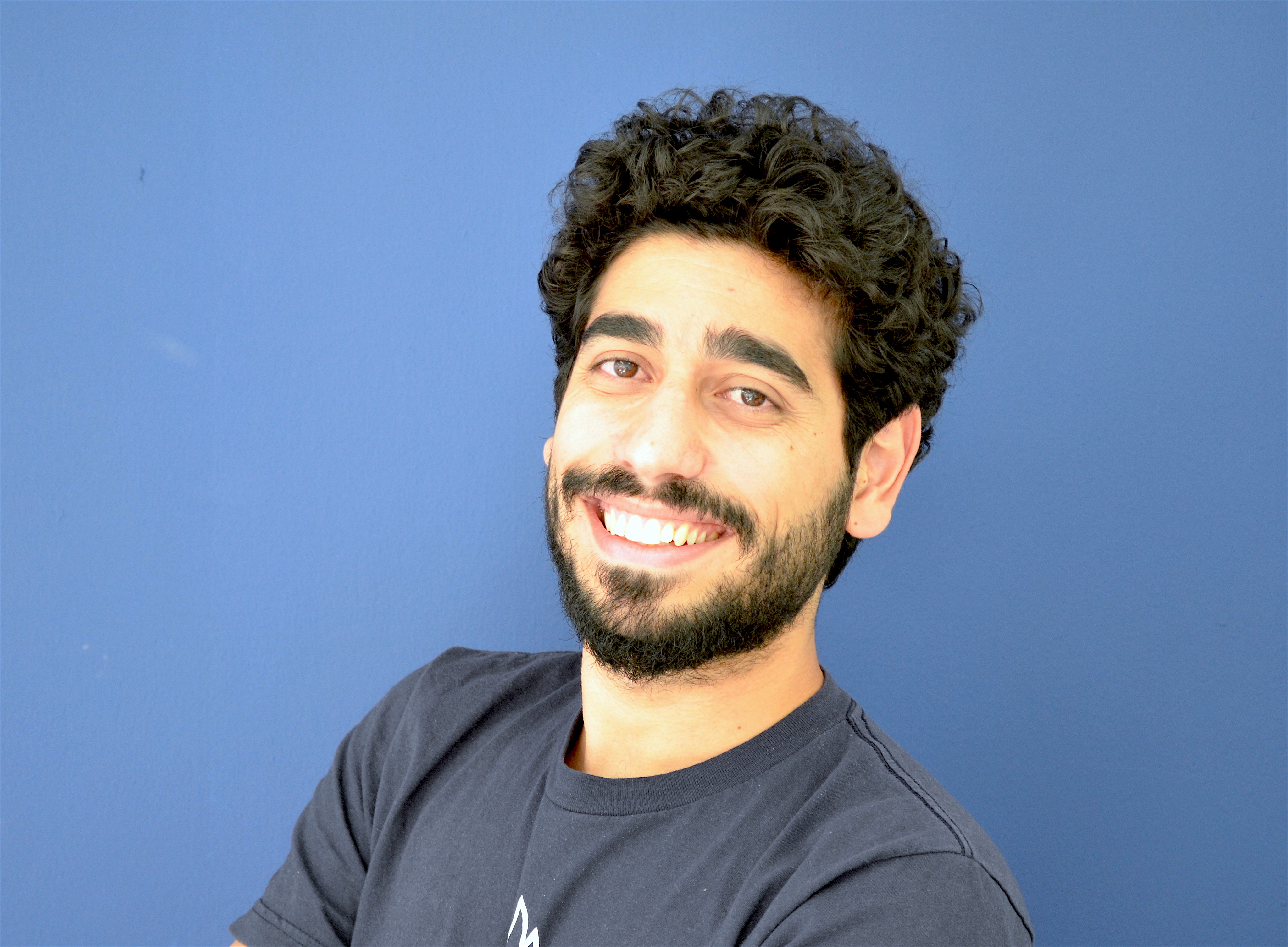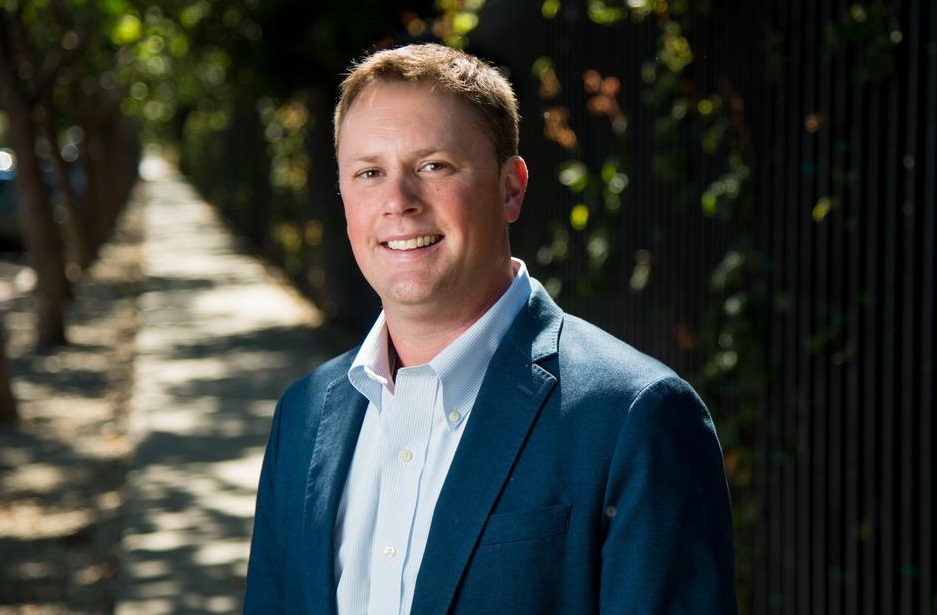Following the release of our recent report “A Decade in Review: Funding to the Female Founders” Crunchbase is highlighting female founders who are paving the way for the next generation of glass-ceiling-smashers. The “Female Founder Series” is comprised of stories, Q&As and thought-leadership pieces from female founders who overcame the odds, raised funding and are now leading successful companies.
Crystal Etienne is a mom (of two gorgeous kids), wife and multitasking businesswoman who, like so many of us, juggles 50 things in a single day. She’s also a woman who gets her period once a month and deals with occasional incontinence. In August 2015, after helping her daughter navigate the ups and downs of “Aunt Flow,” “the crimson wave” or whatever euphemism kids are calling periods these days, Crystal decided enough was enough.
She successfully launched PantyProp on Dec. 5, 2015, bootstrapping her way to $10 million in fewer than three years. Etienne, who has recently secured a series A funding of $15 million from The Craftory, rebranded her company as Ruby Love, relaunching on June 11, 2019. “Ruby” denotes menstruation, a timeless gem that symbolizes health and growth, while “Love” represents the commitment to continue to deliver the highest level of care. Together, Ruby Love brings to life its supportive, unifying message that periods should never stop women from doing, being and going.
Crystal is an impressive leader who can certainly be classified as a glass-ceiling-smasher, considering she raised the fourth largest round of funding in history for a company founded by a Black woman.
We figured Crystal would have some great advice to share, and asked her a few questions about her journey, raising funding, and the impact of COVID-19 on her business:
Q: How has COVID-19 impacted your business and what advice do you have for other founders navigating these uncertain times?
A: A few weeks back when the world was literally shut down from the pandemic, we immediately refocused our business on what matters most and knew that we would still need to find a way to be there for our customers and keep our employees safe and healthy. Our team regrouped immediately to be sensitive to the current times. My best advice to any founder is to focus only on what is important at the moment – your customers’ needs, your team’s health, and necessary spend.
Q: How have you adjusted to the current economic climate and prepared your company for the future?
A: We sell period products to help eliminate the worry and build up the confidence to do anything while you are menstruating. Our products are most important in these times. It helps to eliminate one more problem to worry about while this pandemic happens. The company has always operated on a lean business model and product development for our true customer base. We are happy to be able to continue to do so forthcoming.
Q: Walk us through your experience with the funding process. When did you start planning? What challenges did you face? How did you overcome those challenges?
A: For me, raising funds was unplanned. However, being a black woman in the tech industry is a challenge in itself. I had to overcome many obstacles, but once I did, raising funding became my greatest strength.
In 2017, when I first reached $1 million in revenue, I thought it was enough to raise funds from VCs. I quickly learned it wasn’t, so I temporarily refocused my time. I realized that time spent focusing on the business, learning a true audience, planning a long-term strategy and ignoring the noise would put the business in a better position for years to come.
Q: What questions were you asked by investors in the process?
A: In my experience, VCs generally ask pretty much the same things: What is the end goal for the company? What are your metrics? Where/who is your market? Although the questions are the same, they are usually asked in a different way.
Q: What was the best piece of advice you got when you were in the process of pitching?
A: The best piece of advice I ever received was from top angel investor Jason Calacanis. Within two seconds of pitching him he told me to get to the point–and I did just that. He was absolutely right. To this day, I give that advice to many people I mentor or those who ask me for advice. It is the best advice you can give anyone, because you truly only have 15 seconds to catch the attention of your audience when pitching.
Q: How did you feel throughout the pitch process?
A: I absolutely dread pitching. I think it’s such an awkward moment for any, or most, founders. It wasn’t until I stopped looking at it as pitching and started looking at it as me telling the story of this great company and opportune market that I started to feel completely comfortable. I know Ruby Love is, and will be, a success without any hesitation, so talking about it comes easily for me. In fact, I no longer call it a pitch, I call it a success story unwritten.
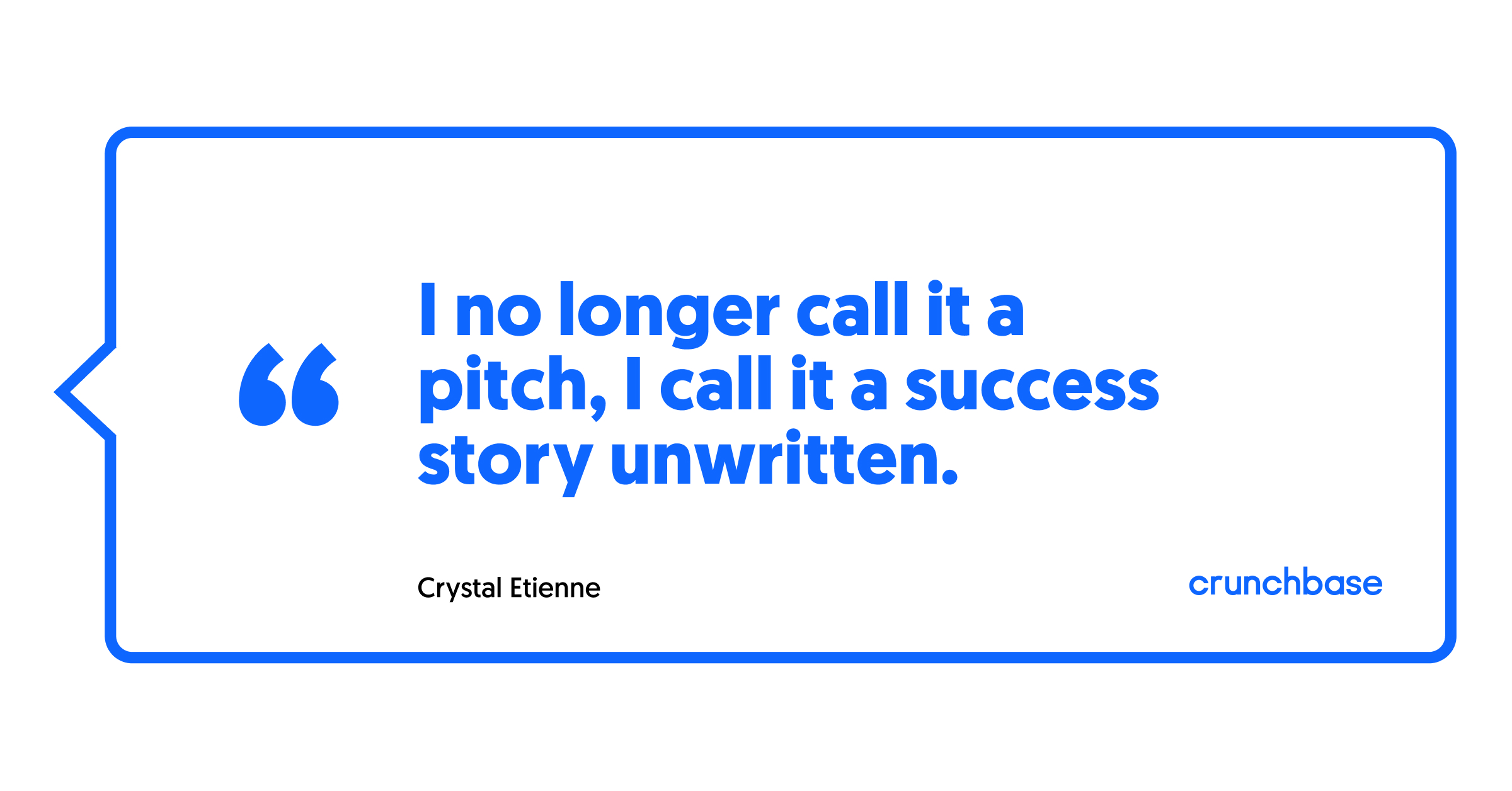

Q: Where did you go for resources?
A: I had absolutely no resources or network, so I scoured Google, Quora and Active Angels online to answer questions which I had no one to really answer; I created my own internet network in a way. I would search the same thing in different ways and always ended up with better results than the last time. I would then follow up by reaching out individually. I’ve only once asked for an introduction to an investor. I found doing the research and legwork myself always worked better and felt more authentic. This authenticity is what inspired people to offer me opportunities.
Q: Did you do mock pitching/pitch practices?
A: Never. I do everything by gut and in the moment–it is real and authentic to heart.
Q: How did you structure your presentation? Was your pitch a story or more fact-based?
A: Both. By the time I started meeting VCs, telling the story was grounded in facts. I was able to visually show real company metrics of 400 percent growth year over year, true market information and a clear understanding of our customer base.
Q: As a female founder, did you feel your pitch process differed from that of a man?
A: I learned early on not to make it any different. I researched and found that demonstrating the lifetime value of the company and its products–along with undeniable metrics–painted the big picture, so there was no need to try to persuade. VCs either want to come along and make money in the end, or they choose to select another business.
Q: According to data from the last decade, women, on average, raised 13 percent less than male founders. Does that surprise you?
A: Women, especially Black women, have not been given the opportunity to join “the network” like most white, male founders. Most don’t even know where to turn.
Q: What needs to change to help women close this gap?
A: I think tech leaders should demand that women are provided the same opportunities, invites and network let-ins. Once we have the same opportunities and connections, women will be the force and majority. Women are natural leaders, so by opening the doors and inviting us in, we will close the gap. Most importantly, this must be done genuinely or these efforts won’t matter.
Q: What advice would you give to women entering the pitch process?
A: Don’t worry about the now, focus on the future. If you do not have an end goal, fundraising may not be for you. Always be thinking ahead so telling your story is easier.
Q: Anything else you’d like to share?
A: I just want every woman to know that changing your mindset is not a fail, it’s a part of the process for success.
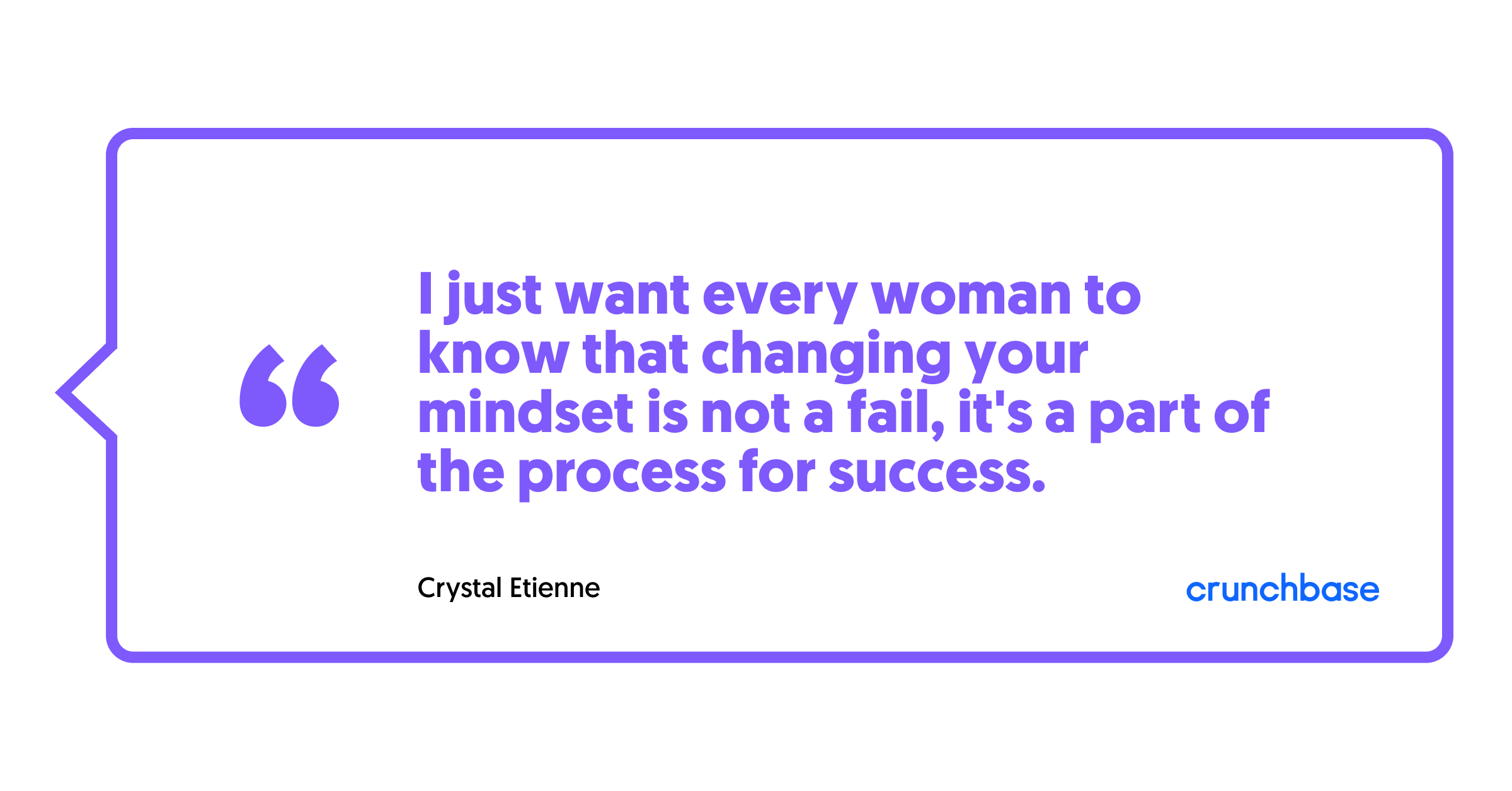

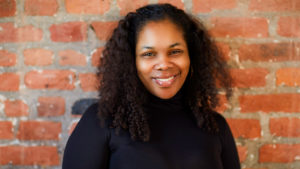

Crystal Etienne, founder of Ruby Love.


